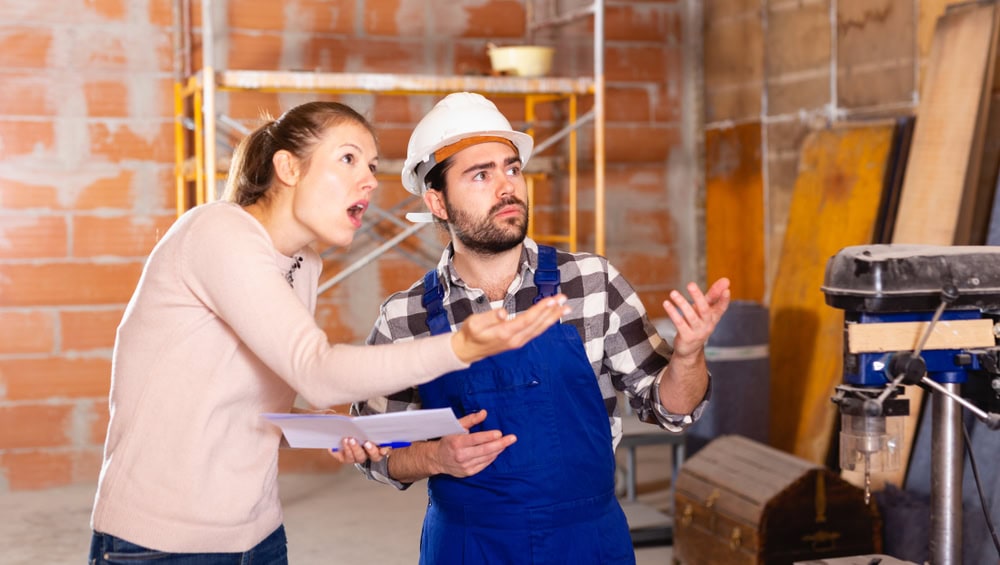General contractors need to know the ins and outs of their liability before, during, and after they have completed construction on their projects. Property owners would do well to keep these details in mind as well!
In this article, we’ll talk about the difference between a general contractor’s liability during construction versus their liability after their work on the job is complete. We will also discuss the point at which property owners become responsible for structural issues, so you’ll know exactly when you may be liable for any jobs you work on or work you have done.
Understanding General Contractor Liability
There is a great deal of responsibility on the shoulders of general contractors overseeing construction projects. It is their job to make sure working conditions are safe at the worksite, 24/7, around the clock.
Since they also manage subcontractors, general contractors are on the hook for those contractors’ responsibilities and mistakes as well. But their liability is not unlimited.
There is a defined timeline during which general contractors can be held accountable for issues related to construction. See our post on how long contractors are liable for a deeper dive into this.
Liability During Construction
General contractors are responsible for maintaining a safe work environment. It sounds simple, but this means they have to check in on all their workers and make sure they’re following safety protocols properly. Mitigating risk and preventing accidents is pretty tough!
As we mentioned above, some of those workers could be subcontractors with specialized licenses. Making sure that specialized work meets the project’s requirements can be a tall order, but it is always your responsibility.
With that in mind, quality control is a major concern of the general contractor. Any defects, code violations, or any kind of substandard work could get a general contractor in trouble – including losing your license.
The general contractor is also responsible for maintaining project timelines. Delays could cause a breach of contract and could result in financial penalties for the general contractor.
Finally, it is the general contractor’s duty to make sure construction projects comply with local building codes, regulations, and standards. This means pulling permits and making sure no structural defects or issues are compromising the quality of the end product.
Finally, contractors have a responsibility to notify their clients about problems. Upon noticing an issue, it is up to the general contractor to address it promptly and to fix the problem.
Liability After Completion
As contractors complete projects and hand everything over to the property owner, their liability starts to change. Here are a few items to take into consideration during this stage:
Warranty Period
- A lot of times contractors provide a warranty for their work, which covers defects or issues that arise shortly after construction is finished. The duration of this period varies from project to project but it often spans one to two years.
Statute of Limitations
- Property owners have a certain time frame during which they can take legal action against a contractor. It depends on their jurisdiction, but there is a time clock on most construction-related legal claims.
Negligence or Misrepresentation
- The discovery of negligence or misrepresentation on the part of the contractor warrants legal action and may still be possible beyond the statute of limitations. The burden of proof may be higher, but a property owner may still have a case.
Property Owner Responsibility for Structural Issues
The property owner is responsible for maintaining the integrity of the structure overall. Here are a few specific situations where they might be liable for structural issues:
Change of Ownership
- When property owners purchase or inherit pre-existing structures, they also inherit the problems that come with those structures. An inspection prior to purchase will help a property owner to-be assess issues and negotiate accordingly for the best value price.
Neglect
- If property owners are neglectful and fail to maintain a structure, they are liable for any damages that get flagged during an inspection. Keeping up regular maintenance is extremely important for property owners as it prevents costly repairs down the road.
Improper Modifications
- At times, property owners make modifications or renovations without following proper codes and regulations. In these cases, they are responsible for resulting structural problems and any complaints from local jurisdictions.
Conclusion
A general contractor’s liability varies depending on which phase of the project they’re on. The terms of their contract may include specifics pertaining to safety, quality, and compliance and those terms will clarify which items the contractor must deliver for their client.
After a project is complete, a contractor might still be liable during a warranty period. However, property owners must be vigilant about inspecting and maintaining the structure they own to avoid structural issues and potential legal troubles.
Ultimately, it’s best to refer to the advice of legal and construction professionals for guidance in these situations. This explainer about property damage cases is available on the California Courts Self-Help Guide website to help out as well.

